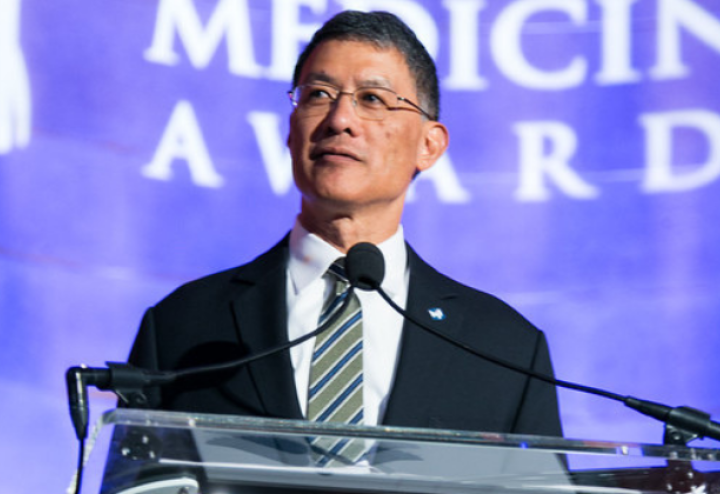
I've transitioned into my third year at the helm of the Henry M. Jackson Foundation for the Advancement of Military Medicine, Inc., (HJF).
If I were to characterize this past year, I would describe it as an incredible 12 months of enterprise-wide growth and development, one in which staff and leadership have come together to enhance our overall value to our partners focused on advancing military medicine.
We used the “Objectives and Key Results” framework to address cross-cutting challenges facing the organization and to better execute HJF’s mission. With it, we launched software programs to enhance work performed within both Human Resources and Business Development. We refined our recruiting and retention processes, initiated both functional and customer satisfaction surveys, and we updated and refined our agreements portal. The results of some of these changes will begin to take root as we begin Fiscal Year 2020 and broaden the reach of HJF’s new systems.
I think of medical research as falling into four general areas: 1) pre-award assistance 2) post-award administration 3) regulatory support and 4) data management. This past year we worked hard to improve operations within each of these four areas.
First, we established our ESP Services program that helps individual investigators with editing, biostatistical support and protocol development. Our goal here is to encourage junior investigators prepare highly competitive proposals and subsequent protocols, establishing standards against which these clinical scientists will grow and develop.
Second, we began work on functionally realigning our post-award program management efforts against four broad customer portfolios. Our goal here is to allow for active customer feedback for timely responsiveness, to streamline internal supervision and to more efficiently provide enterprise-level support.
Third, we placed our Regulatory Affairs department under the direct supervision of HJF’s Chief Medical Officer, and then are redoubling our efforts to more effectively provide both needed and desired oversight functions. This change will allow us greater reliability in monitoring regulatory compliance across the programs we support.
Lastly within this paradigm, we completed work on securing DoD's Authority to Operate (ATO), so we can offer fully compliant data warehouse services to our military customers. We are relatively unique in this space, and we provide this welcome service to our military medical partners.
HJF's home office building provided USU's dispersed centers the opportunity to come together under one roof, a process which was begun in earnest this past year. Thus far, we helped secure office and lab space for USU's Center for Prostate Disease Research, Murtha Cancer Center and Surgical Critical Care Initiative. Work has begun on building out space for several other USU Centers, and we are also planning for a more than 200-seat auditorium to host public-private scientific meetings in support of USU and other military medical organizations.
We've partnered with non-DoD inter-agency partners, as well as academic and industry organizations, to advance military medicine across the human domain. Examples include our work with the U.S. Centers for Disease Control and Prevention to conduct clinical trials in Africa; Tracy’s Kids, an NFP a nonprofit that supports art therapy for young patients and their families to help cope with stress; and Google, which is conducting exciting artificial intelligence work to help with clinical diagnoses.
USU and HJF received a 2019 Federal Lab Consortium’s Award for Excellence in Technology Transfer. This award recognizes federal technology transfer teams for outstanding work in the process of transferring federally developed technology to the marketplace. Professor Chris Broder, Ph.D., USU Microbiology Department Chair, and HJF were recognized specifically for adeptly transferring new treatment to India during its recent Nipah virus outbreak.
We closed out data collection for The Veterans Metric Initiative (TVMI) this past fall, a very successful longitudinal observational study of newly transitioning veterans. After associated investigators from the Department of Veterans Affairs and Pennsylvania State University publish their initial findings and recommendations, our hope is to make the accompanying data set available to others for further research into this potentially vulnerable population.
We continue to actively partner with DoD Medicine and other governmental organizations to conduct clinical trials in Africa, Europe and Southeast Asia.
I’m proud to report HJF earned one of the top 100 best places to work awards from the Washington Business Journal, based on positive responses from our employees in the National Capitol Region. To continue to improve as a top employer, we piloted a Corporate Social Responsibility program, which allowed staff to volunteer at military-friendly venues during work hours. We also introduced team-building outings locally by having two HJF days at the Washington Nationals baseball games.
With the dynamic nature of the ongoing Military Health System transition, I consider it critical for HJF to help USU and the military services to “weather the storm” of medical research uncertainties. I want to exercise our well-placed position to serve as the “connective tissue” between DoD Medicine and the private sector. We will continue our efforts to further refine our reputation as DoD Medical Research’s partner of choice.
The secret to our success to date has been our people. The key to our continuous passion is HJF's mission. We remain fully engaged in doing whatever we can to help advance Military Medicine. This has been a good year for HJF; I foresee an even better 2020.
Joseph Caravalho, Jr., M.D., MG, U.S. Army (Ret.)
President and CEO
Meet the Council of Directors at the helm of HJF.

View the executives navigating HJF.